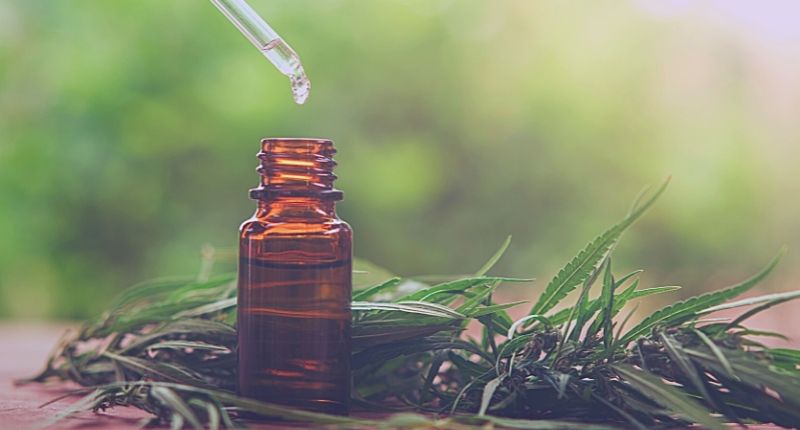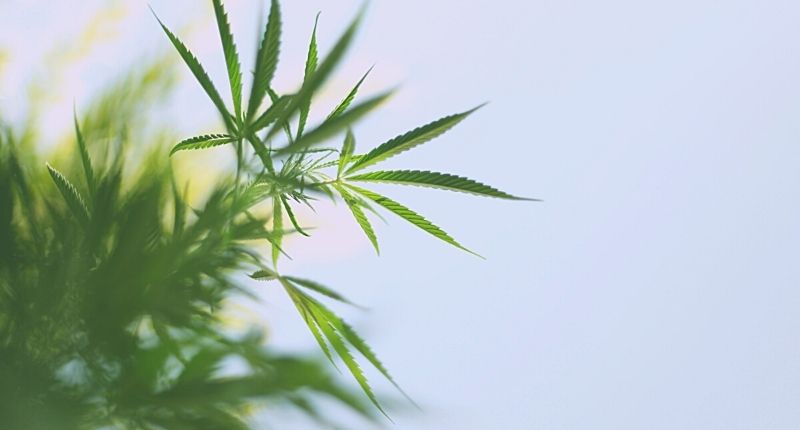Over the last few years, CBD oil supplements have been taking the world by storm, with many people citing it as a miracle treatment for common ailments. Some individuals look to it specifically for targeted pain relief, alleviating stress and anxiety, or as a daily supplement to maintain their overall health.
What one must remember is that CBD oils and other CBD products can only be sold as a food supplement, nothing more. No medicinal benefits are currently recognised regardless of increased research and much anecdotal evidence.
So if you want to give CBD products a try ensure you research the market first looking quality ingredients, proof of lab testing and purchase from a brand who does not sell their product as a solution to medical conditions.
This article will explain more about CBD oil supplements and how long CBD compounds stay in your system. But first, let’s get into what exactly food and health supplements are and how they work.
What Is a Health Supplement?
Health food or dietary supplements are meant to do just that: supplement your diet. By taking a tablet, capsule, powder, or liquid, the supplement should supply you with nutrients, vitamins, and minerals you otherwise may not be getting from your traditional diet. They can be used for a variety of reasons like to strengthen bones or improve immune system function.
These nutrients are typically extracted from food, plants or are made synthetically to increase their quantity. Dietary supplements can come in the form of calcium or vitamin D for example. Another option, extracted from the hemp plant, is CBD. CBD food supplements come in many forms and vary in terms of the amount of CBD content in each. Options include topicals for skin, edibles which are digested and oral tinctures.
Tinctures or bottles of CBD oil house their terpenes content in a carrier oil. A carrier oil is usually hemp seed oil but this can vary from one CBD company to another. Others may use MCT oil which is made of coconuts and is a healthy source of energy for the body and mind. CBD oils or drops come with different levels of CBD content so you can get a low strength option, a middle strength or high amounts.
More Reading: Can Truck Drivers Use CBD Oil?
What Is a CBD Food Supplement?
CBD or Cannabidiol is one of the 113 chemicals found in cannabis plants. The cannabis plant family is made up of a number of plants but the one which CBD comes from is hemp. Once extracted from the hemp plant, CBD could potentially provide your body with various health benefits. Properties of CBD oils and other products include anti-inflammatory properties and regulatory effects on the nervous system.
When you take CBD, you get all the benefits of cannabis without the toxic effects found in Tetrahydrocannabinol (THC), which is the cannabinoid that makes you feel ‘high’. This cannabinoid is only found in trace amounts in hemp whereas there is naturally a large amount of it in marijuana. This is where confusion with the safety of CBD arises. CBD as a cannabinoid for use in CBD supplements is always extracted from the non-toxic hemp plant, not marijuana.
CBD is also referred to as Cannabidiol and continues to be the subject of many testimonials by customers and users of this natural compound. Countries vary when it comes to the law around cannabis supplement products as more research studies are needed to confirm such claims of medicinal properties. Factors affecting the status of CBD products include side effects, which are deemed to be none or rare, THC levels and extraction methods.
What Nutrients Are in Cannabidiol?
CBD oil contains an array of the same amino acids that many of us get from a healthy diet. It’s also rich in B-complex vitamins like Vitamin B6, B12, riboflavin, niacin, and thiamine.
If you need help boosting your immune system, CBD is also full of omega-3s and omega-6 fatty acids, which are also suitable for heart health and blood pressure.

CBD is also high in iron, which can be particularly helpful for women or vegans. In addition, CBD has potent antioxidant properties and offers lots of Vitamin C, E, as well as flavonoids.
How Does CBD Oil Work?
CBD works primarily through its engagement with the Endocannabinoid system (ECS).
The ECS is a cell signalling system in our bodies that works to regulate a range of functions and processes like sleep, metabolism and appetite. Cannabinoids like CBD which are taken from the cannabis plant mirror the role of natural Endocannabinoids produced in the human body.
The ECS is made up of Endocannabinoids, receptors, and enzymes. The Endocannabinoids are molecules similar to cannabinoids that our body produces on its own and promote healthy internal functioning.
The receptors bind with the Endocannabinoids to signal the ECS for the central and peripheral nervous systems. Binding to the central nervous system can help alleviate physical pain, while the peripheral nervous system can boost your immune system.
Finally, the enzymes help break down the Endocannabinoids once the process is complete. New users of CBD should read up on the ECS before purchasing or before starting their supplement product as it is very interesting to know just how CBD works within the human body.
Can CBD Show Up on a Drug Test?
Depending on your job or if you’re an athlete, you might wish to know that CBD can actually show up on a drug test as long as it’s mixed with any level of THC. Although THC content is very low in regulated CBD products made from hemp, it can still show up on the results of drug testing.
Even though you may no longer feel the effects of CBD, it may still be detectable in a drug test. While CBD can live in your system for up to 32 hours, lab tests can still detect the metabolites for much longer.
It should be noted that most drug tests screen for THC rather than CBD since THC is known to impair the user due to its highly psychoactive effects. However, CBD is considered a THC metabolite and therefore contains traces of THC.
Moreover, the more frequently you use CBD products for a prolonged length of time, the more detectable it becomes. It is important to research the laws subject to the area you live as laws vary from place to place and country to country.
How Long Does CBD Oil Stay in Your System?
When it comes to urine, the most common drug screening method, it greatly depends on your dosage and its frequency. CBD detection can range from three days to up to two weeks after the last dose was taken. More frequent doses means more chance that it will be present in your system.

Blood tests are not as common for drug tests due to how quickly THC metabolites can be eliminated from the bloodstream. While THC is only detectable in your plasma for up to five hours after you take it, metabolites like CBD can be present for up to a week.
How Do I Take CBD Supplements?
CBD can be extracted and put into a variety of products that can be taken in different ways. The most common way to consume CBD is through oils, capsules, and edibles. Oils and tinctures are typically applied under the tongue for fast absorption through the mouth and into the blood.
In addition, CBD can also be applied topically, which can be particularly helpful for people experiencing bodily pain, skin conditions, or any other external ailment caused by inflammation. Topicals come in the form of creams, salves, massage oils, lubricants, etc.
CBD oil can also be infused into a variety of foods like chocolate, Gummies, juices, coffees, teas, etc. You can even purchase CBD-infused coconut oil, which you can add to your own cooking.
Review Your Health Plan
CBD has continuously been marketed as a miracle treatment for a wide range of ailments. However, it’s always important to talk to your doctor first before implementing any new treatment into your daily routine, mainly to avoid contraindications with other medications.
CBD can provide pain relief both internally and externally, depending on the severity of the symptoms. When it comes to the effectiveness of CBD, it’s important to note that consistency is key. Start your dosage small and work your way up to determine how much CBD intake is right for you.

